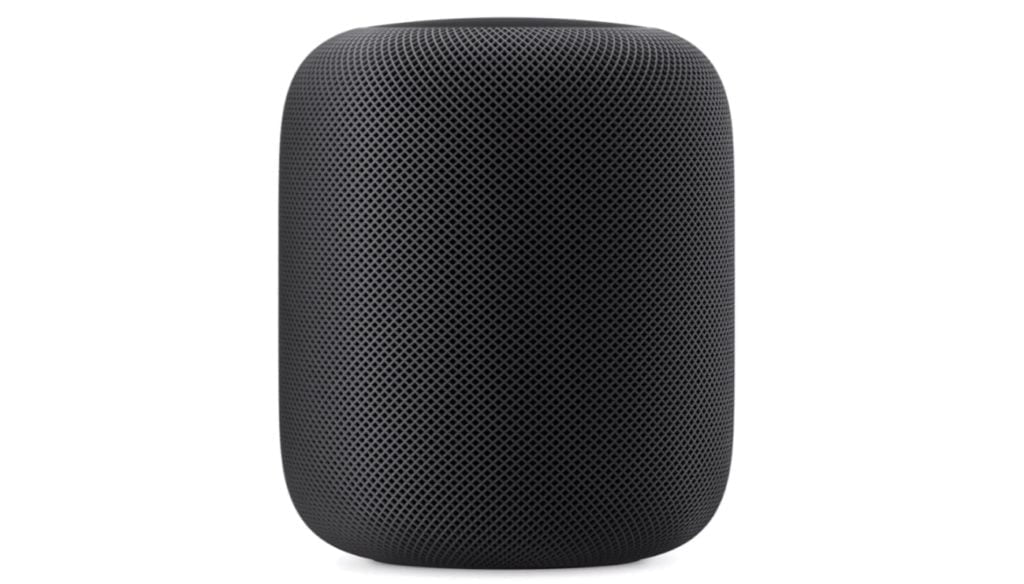
Having missed the holiday shopping cycle, Apple is finally releasing its HomePod smart speaker on February 9. It will initially be available in the US, the UK and Australia and later “this spring” in France and Germany.
With its higher price ($349) and late entrance, Apple is definitely an underdog versus Amazon and Google. There’s evidence that more than 40 million smart speaker units are already in US homes, the majority of which are Amazon Alexa devices. However, there are roughly 125 million households in the US, so the market is far from saturated, and there’s some indication of demand for HomePod.
Many of the devices sold, however, have been at the low end of the market (Google Home Mini and Amazon Echo Dot). Apple has no such lower-end offering and has positioned its HomePod as a premium speaker, competing with Sonos (which has a version with Alexa). The company is also using HomePod to promote Apple Music.
Unlike Google Home or Alexa, HomePod won’t make calls, but it will function as a high-end speakerphone for iPhones. Apple is also playing up the “security and privacy” angle to promote HomePod:
With HomePod, only after “Hey Siri” is recognized locally on the device will any information be sent to Apple servers, encrypted and sent using an anonymous Siri identifier.
Some privacy concerns have been raised about Google Home and Alexa devices “always listening” or recording conversations in the background. Google and Amazon have both sought to assure the public that they’re not “eavesdropping” on device owners.
In contrast to when it unveiled HomePod, where Siri was something of an afterthought, Apple is now emphasizing Siri and smart home integration:
Siri intelligence helps users discover new music, control home accessories and more . . .
With support for HomeKit, HomePod can control hundreds of home accessories or set scenes like, “Hey Siri, I’m home,” to control a number of different accessories at the same time. HomePod can turn on the lights, raise the shades, set the desired temperature or make other adjustments and serves as the perfect home hub, enabling remote access and automations.
Buried in the lengthy release is the following: “Siri [is] now actively used on over half a billion devices.” That compares with Google’s recent statement that the Assistant is “available on more than 400 million devices.”
Once Apple begins selling the HomePod, we’ll know quickly if it’s going to capture a meaningful share of the market or become an also-ran. Yet the virtual assistant/smart speaker market is now too important for the company to cede to others, given that it has become a gateway to the smart home and begun eroding time spent with other media and devices, including smartphones.

